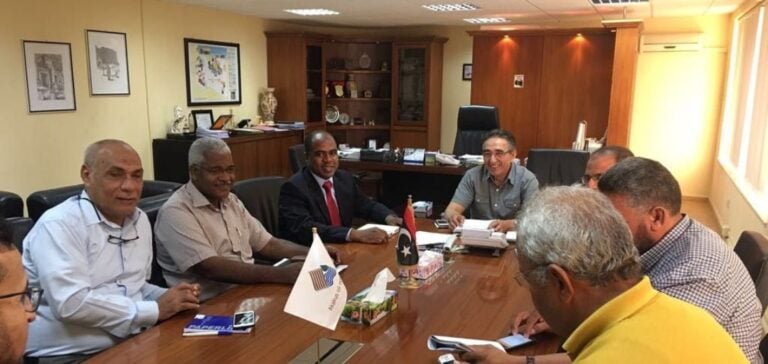Libya’s Attorney General has ordered the indictment of Oil Minister Khalifa Rajab Abdulsadek on corruption charges.
This decision comes against a backdrop of political rivalry within the government, where two men, Khalifa Rajab Abdulsadek and Mohamed Aoun, have simultaneously held the post of Oil Minister since May.
This chaotic situation exacerbated the difficulties faced by Libya’s oil sector, already affected by years of instability.
According to the Attorney General’s office, Abdulsadek attempted to force an accounting official to approve a document authorizing the disposal of 457,000 and 600,000 euros to a foreign company.
Local sources confirm that these actions are deemed incompatible with his official duties.
Abdulsadek, who was appointed interim minister in March after Mohamed Aoun was suspended for a corruption investigation (later dropped), has yet to comment on the accusations.
Internal conflicts and implications for the oil industry
The rivalry between Khalifa Rajab Abdulsadek and Mohamed Aoun, exacerbated by the close political ties between Abdulsadek and the Prime Minister of the Government of National Unity (GNU), Abdul Hamid al-Dbeiba, created an unprecedented situation where two oil ministers were operating from adjacent offices.
This confusion at the top of the ministry complicated the task of international oil companies seeking to revive their business in Libya, a country that holds the largest oil reserves in Africa.
Since the fall of Moammar Gaddafi in 2011, Libya has been plunged into political chaos, with competing governments in the east and west of the country.
The oil sector, crucial to Libya’s economy, has become a power struggle between various factions, including Prime Minister Dbeiba, National Oil Corporation (NOC) Chairman Farhat Bengdara and eastern warlord Khalifa Haftar.
Impact on production and future prospects
Political instability continues to weigh heavily on the country’s oil production.
In July, Libya declared a state of force majeure on the Sharara oil field, the country’s largest, after Saddam Haftar, son of Khalifa Haftar, ordered its closure.
This decision follows the issuance by Spain of an arrest warrant for Saddam Haftar in connection with a drone affair.
Repsol, a Spanish company, is one of the operators of the Sharara field.
Despite these disruptions, Libya hopes to increase production to 2 million barrels per day (bpd) over the next five years, an ambitious target that exceeds pre-2011 levels.
However, the uncertain political situation threatens to jeopardize these plans, as the country struggles to maintain stable production.
In July, Libya produced around 1.15 million bpd, according to the latest OPEC survey by S&P Global Commodity Insights.






















